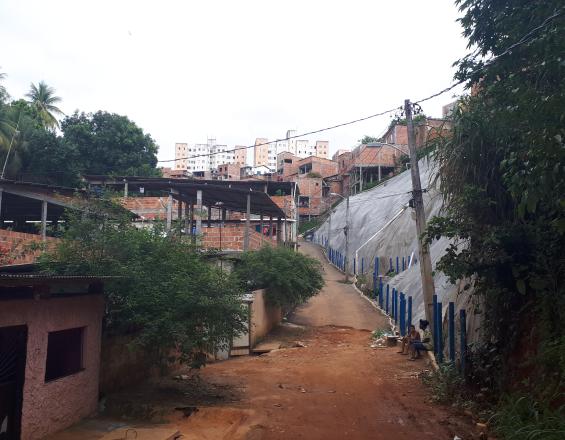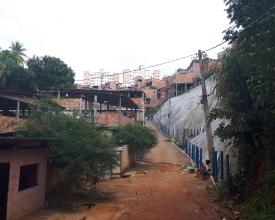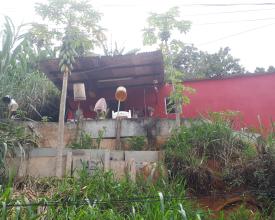
Identifying ecosystem-based measures for climate change adaptation in vulnerable communities in Salvador (Brazil)

GIZ is supporting the Brazilian Federal Ministry of Environment in the implementation of the National Adaptation Plan (NAP) in the project ProAdapta. The project cooperates with the city of Salvador on reducing climate change-related risks.
Through stakeholder meetings and interviews with experts, three different climate change impacts and hazards were selected: Increased risk of landslides and flooding due to more extreme precipitation as well as increasing heatwaves.
Two communities were selected based on criteria such as presence of entry points, several mapped risks and potential of already planned interventions. Next, vulnerability assessments were conducted by interviewing experts especially from academia and leaders of the two communities as well as through focus group discussions with community residents and document analysis.
Based on this, green and hybrid solutions for Climate Change Adaptation and Disaster Risk Reduction were identified and compared with grey solutions.
Impacts
Preliminary impacts and products are
1) Increased awareness of ecosystem-based measures for climate change adaptation and disaster risk reduction within key secretariats and institutions of the prefecture that focus on sustainability, resilience, infrastructure and urban projects. Such increased awareness holds the potential to not only positively affect the communities, but also governance and policies in Salvador, in general.
2) Consideration of climate change projections in the development of Structural Actions Plans of the Civil Defense.
3) A portfolio of green and hybrid solutions for climate change adaptation and disaster risk reduction such as: Slope stabilisation and permeabilisation with vetiver grass and trees for landslide reduction; bioswales and rain gardens against flooding. Such solutions could be used in future projects and policies by incorporating them in planning norms and the catalogue of applicable construction works.
4) Identification of research gaps, especially regarding vegetation types for specific disaster risk reduction measures and good practices of ecosystem management in communities.
5) The main challenge of implementing EbA measures in low-income communities is sensitising the population for effectiveness and participation.

